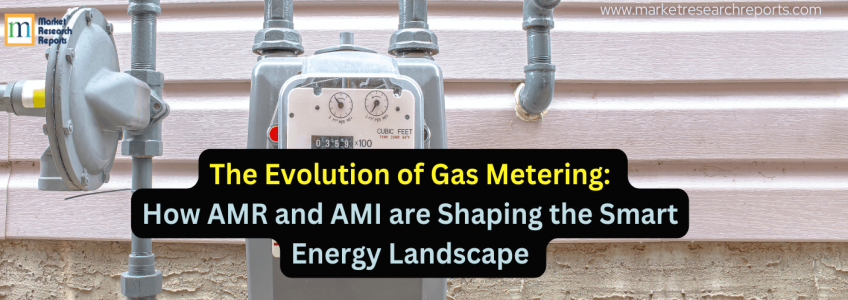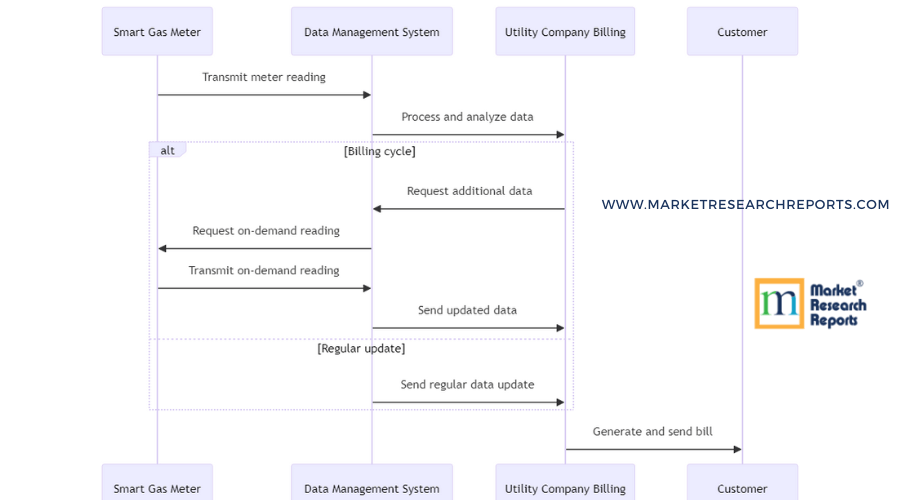The Evolution of Gas Metering: How AMR and AMI are Shaping the Smart Energy Landscape

Smart gas meters represent a transformative leap in managing and measuring gas consumption in both residential and industrial settings. As part of the broader smart grid technology landscape, these devices offer real-time data, enhanced efficiency, and improved safety features. This article explores the fundamentals of smart gas meters, leading manufacturers in the field, and the latest trends and technological advancements shaping their future.
1 . Understanding Smart Gas Meters
Smart gas meters are advanced devices that measure gas flow electronically and transmit this data to the gas supplier and the consumer. Unlike traditional gas meters, which require manual reading, smart meters provide continuous, accurate readings and can alert both suppliers and users to real-time consumption, potential leaks, or any unusual patterns in gas usage.
These devices are integral to smart home systems and industrial energy management strategies, allowing for precise billing, energy saving, and enhanced operational efficiency. They use wireless communication technologies such as RF (Radio Frequency), cellular networks, and sometimes, power line communication (PLC) to share data.

2 . Leading Manufacturers
Several companies have established themselves as leaders in the smart gas meter market, thanks to their innovative solutions and extensive product ranges. Some of these key players include:
Itron, Inc.: A global technology company that offers a wide range of smart gas meter solutions designed for residential, commercial, and industrial applications. Itron's products are known for their reliability, accuracy, and ability to integrate with smart grid technologies.
Honeywell International, Inc.: Recognized for its comprehensive smart energy and smart grid solutions, Honeywell's smart gas meters are designed to enhance safety, efficiency, and convenience for all types of users.
Landis+Gyr: A pioneer in smart metering and smart grid solutions, Landis+Gyr offers a broad portfolio of smart gas meters that cater to the diverse needs of their global clientele, including advanced features for data analysis and management.
Elster Group GmbH: Now part of Honeywell, Elster has been a key player in the development and manufacturing of innovative gas measurement and control technologies, including smart gas meters that offer high precision and connectivity.
3 . Latest Trends and Technological Upgrades
The smart gas meter industry is continuously evolving, driven by technological advancements and the growing demand for sustainable energy solutions. Some of the latest trends include:
Integration with IoT: The integration of smart gas meters with the Internet of Things (IoT) enables more sophisticated monitoring and management capabilities. This allows for predictive maintenance, remote shut-off capabilities, and enhanced user interfaces for consumers and utilities alike.
Advanced Data Analytics: With the proliferation of data from smart meters, advanced analytics are being employed to optimize gas usage, detect leaks faster, and even predict future consumption patterns. This leads to more effective demand response strategies and energy conservation efforts.
Enhanced Communication Technologies: The shift towards more reliable and secure communication technologies, such as NB-IoT (Narrowband Internet of Things), is improving the connectivity and efficiency of smart gas meters, especially in areas with challenging environmental conditions or limited infrastructure.
Regulatory Support and Environmental Concerns: Governments worldwide are increasingly supporting the deployment of smart meters as part of their energy efficiency and environmental policies. This regulatory push, combined with growing awareness of climate change, is driving the adoption of smart gas meters.
User-Centric Innovations: Manufacturers are focusing on developing user-friendly devices with features like mobile app integration, real-time alerts, and customizable reports to enhance the consumer experience and encourage proactive energy management.
Automatic Meter Reading (AMR) and Advanced Metering Infrastructure (AMI) in the Context of Smart Gas Meters
In the evolving landscape of smart gas meters, two pivotal technologies stand out for their roles in enhancing metering accuracy, efficiency, and data utility: Automatic Meter Reading (AMR) and Advanced Metering Infrastructure (AMI). Both technologies are fundamental to modernizing utility management and consumer engagement, but they differ significantly in capabilities, complexity, and the level of interaction they facilitate between utilities and consumers.
4 . Automatic Meter Reading (AMR)
Automatic Meter Reading (AMR) is a technology that automates the collection of consumption data from customers' gas meters and transmits it to the utility company for billing and monitoring purposes. AMR systems primarily aim to eliminate manual meter readings, thereby reducing operational costs and improving billing accuracy. In the context of smart gas meters, AMR can be seen as the foundational technology that enables remote data collection.
Key Features of AMR:
- Remote Data Collection: AMR systems use various communication technologies such as RF (radio frequency) transmissions to collect data from meters without needing physical access.
- One-Way Communication: AMR typically involves one-way communication from the meter to the utility. It allows for the automated collection of consumption data but does not support two-way interactions for data or command exchange.
- Operational Efficiency: By automating the meter reading process, AMR significantly reduces the labor and time involved in collecting consumption data, thereby increasing operational efficiency.
5 . Advanced Metering Infrastructure (AMI)
Advanced Metering Infrastructure (AMI) represents a more comprehensive approach to meter data management and utility-consumer interaction. AMI systems encompass not only the capabilities of AMR but also add two-way communication between smart meters and the utility provider. This bidirectional communication capability enables a host of additional functionalities, including remote service management, real-time consumption data, and enhanced customer engagement strategies.
Key Features of AMI:
- Two-Way Communication: Unlike AMR, AMI systems facilitate two-way communication, allowing utilities to send commands to the meter (e.g., for remote shutoffs or firmware updates) and receive data in return.
- Real-Time Data and Alerts: With AMI, utilities and consumers can access real-time consumption data. This capability supports more dynamic pricing models, immediate leak detection alerts, and enhanced energy management strategies.
- Integration with Smart Grids: AMI is a cornerstone of smart grid technology, enabling more sophisticated energy management and distribution strategies by leveraging detailed, real-time data from smart meters.
- Customer Engagement and Empowerment: Through AMI, consumers gain access to detailed insights about their gas usage, empowering them to make informed decisions about their energy consumption and contribute to demand response initiatives.
6 . AMR vs. AMI in Smart Gas Metering
While AMR provides a solid foundation for transitioning from traditional to smart metering by automating data collection, AMI takes this transformation further by enabling a fully interactive, data-driven relationship between gas utilities and their customers. AMI’s two-way communication capability unlocks the full potential of smart gas meters, facilitating not just improved operational efficiencies but also contributing to energy conservation, enhanced customer service, and the integration of renewable energy sources.
In essence, AMR can be seen as a stepping stone towards the more comprehensive and interactive capabilities offered by AMI systems. As the demand for smarter, more responsive utility management grows, the shift from AMR to AMI represents a natural evolution towards a more connected, efficient, and sustainable energy future.





